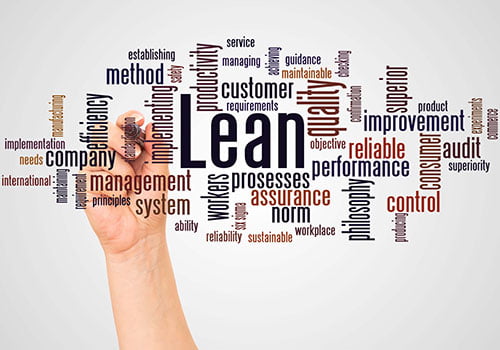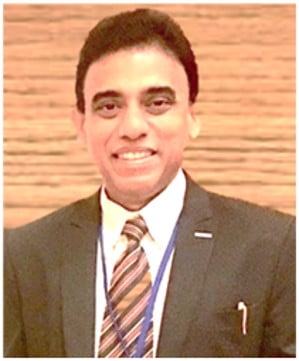Dynamic Lean Management System
(2 days)
Profit Proofing Your Business

The Lean Management System has long been recognized as a keyway to eliminate waste and achieve high efficiency, productivity, and profitability.
A 5 % savings is equivalent to double your revenue or sales figure. Cost savings, when done right, have a great impact and high leverage on an organization’s profitability. An equivalent of doubling your effort and success in sales which is almost not possible in the short run.
Realize your hidden profits through a faster and highly effective systematic and systemic lean management methodology. Its’ essence is to make work easier, less burdensome, and more meaningful for workers, with a focus on creating a conducive and motivated work atmosphere.
This Dynamic Lean Management Program is a comprehensive and interactive to equip participants with the knowledge and skills to implement lean principles effectively in their organizations. Lean management focuses on maximizing value while minimizing waste, streamlining processes, and fostering a culture of continuous improvement. This program will provide participants with practical tools and techniques to optimize workflows, enhance productivity, and create a more efficient and sustainable workplace.
At the heart of Lean Transformation are the concepts of Kaizen, 5S, Muda Elimination, Jidoka, Kanban and Just-In-Time. By applying these concepts and introducing Lean Automation, we can create value and eliminate inefficiencies at the pace of customer demand. It means that every product or service meets our customers’ highest quality standards and expectations.
We will also learn how Toyota became the world’s best auto company by maximizing operational excellence as a strategic weapon.
This experience sharing workshop helps the participants:
- Understand the core principles and concepts of lean management.
- Identify areas of waste and inefficiency in organizational processes.
- Learn to implement lean tools and techniques to streamline workflows.
- Develop problem-solving and continuous improvement skills.
- Foster a culture of employee engagement and participation in lean initiatives.
- Measure and analyze key performance indicators (KPIs) to assess lean effectiveness.
- Develop the ability to sustain lean improvements over the long term.
The instruction process is structured based on adult learning concepts and application. The process includes a cross spectrum of lecture, individual and teamwork discussions, team action planning and resource feedback. The workshop sessions are enriched by audio-visual materials and experiential group dynamics to reinforce learning.
Module 1: Introduction to Lean Management
- Overview of lean principles and their origins
- Benefits of implementing lean in organizations
- Key elements of a lean culture
- Introduction to lean tools and terminologies
- The World Class Power of the Toyota Way
- Toyota’s Global Strategy
- Toyota’s House and Two Pillars of Success
- Toyota’s Operations Management System and 4P Model
Module 2: The 14 Lean Management Business Principles
- The principles are organized in four broad categories.
- Long Term Philosophy
- The Right Process
- Value Adding & Continuous Problem – Solving Approach
- Understanding the value stream
- Mapping current-state and future-state value streams
- Identifying value-adding and non-value-adding activities
- Strategies for improving value streams.
Module 3: An insight to Lean Tools and Lean Automation
- JIT, JIDOKA, Heijunka , Kanban, Andon, Poka Yoke, SMED, TPM, CEDAC,
- Hoshin Kanri, Value Stream Mapping
- Lean Automation
- Optical Inspection, Robotics, Data Analytics and RPA
Module 4: Implementing 5S in the workplace.
- Explaining the five key principles of 5S and their interconnections.
- Identifying and categorizing necessary and unnecessary items in the workplace.
- Techniques for removing clutter and disposing of unnecessary items.
- Creating a visual workplace through the practice of “red tagging.”
- Seiri, Seiton, Seiso, Seiketsu, Shitsuke
Module 5: Elimination of 7 Wastes
- Identification and Elimination of Operational Waste
- Overproduction, Waiting, Transportation, Overprocessing, Inventory, Motion, Defects
- Reduction of Operational Cost
- Streamlining & Simplification
- Reducing Cycle Time
- Techniques for Identification
- Effort Impact and Cost Benefit
Module 6: One Piece Flow
- The Process flow assessment
- Set up and design Flow.
- Process Analysis
- Cellular flow
- Cycle time
- Layout Plan
- Standardization
- Continuous Improvement
- Benefits of One-Piece Flow
Module 7: Kaizen /Turning Ideas to Success
- Radical Change (Kaikaku)
- Continuous Change (Kaizen)
- Innovative Change (Kakushin)
- BA chart
- Putting it Together
Module 8: Managing The Dynamics of Change & Changing Mindset for Support
- Why Change
- Benefits of Change
- What are the obstacles to change?
- How to Implement Change
- The Power of Small Changes
Module 9: Lean Accounting KPIs & Measures of Successful Transformation (M.O.S.T.)
- The Power of Measures
- Linking and aligning to Key KPIs
- Measurement of Loss Cost (Management Loss and Quality Loss)
- Real Tangible Savings
Module 10: Lean Management Implementation Consideration
- Top Management Commitment
- Positive Work culture
- Total Production System Training and Development
- Establishing a Lean Steering Committee
- Establish A Model line.
- Develop a Master Plan
- Periodic MOA for Improvement
-

Jonas is a highly experienced and dynamic Business & Organizational Leader in The Malaysia Business & Manufacturing fraternity and is a well sought-after speaker and subject matter expert in the industry. He has held senior Management positions in one of the largest Japanese Conglomerates in Malaysia and is highly experienced in Overall Management areas with his last held position as the Executive Director of one of Panasonic Malaysia’s largest manufacturing facility overseeing and managing the entire operations and value stream from sales to key account management and delivery- covering the entire value chain, having handled many delicate and challenging situations and crisis internally and externally. He has had a proven track record of leading and developing leaders across a spectrum of levels and functions and is a key motivational and developmental force in the people he manages.
Besides Strategic Leadership and Overall management capability he is also seasoned and experienced Lean, Productivity and Quality Improvement, Automation & Industry 4.0 professional with more than 30 years of working experience in the manufacturing industry, in Semiconductors, Telecommunications and Home Appliances etc. and worked in the United Kingdom in his earlier years.
